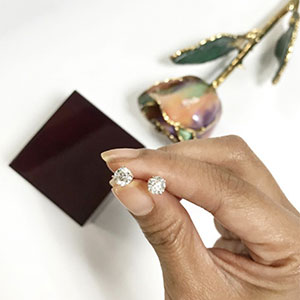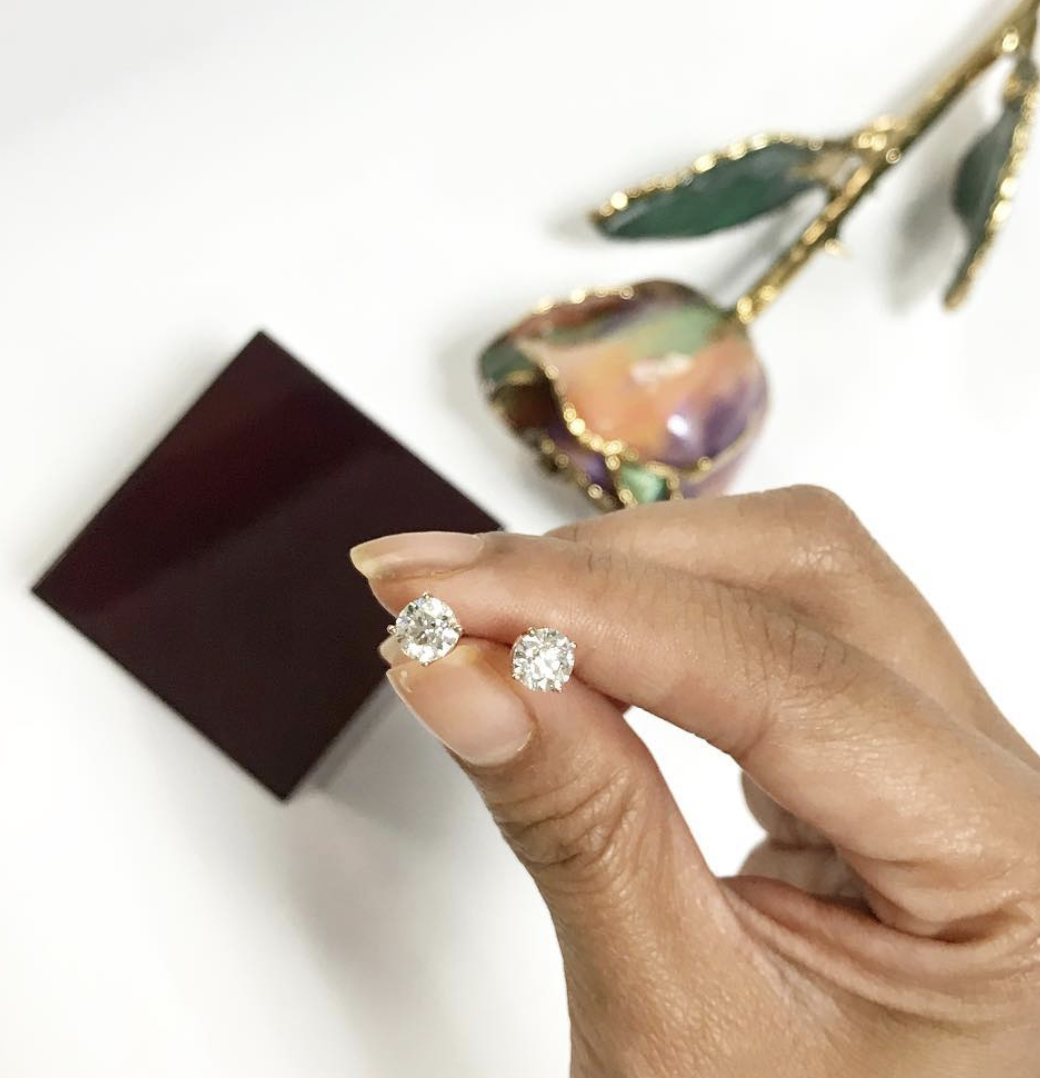



When purchasing a diamond, make sure you’re buying from a reputable source. Some diamonds come with a GIA or EGL USA certification, which ensure they are real, but most don’t. If you’re worried that a diamond you purchased may be fake, there are many ways you can check its authenticity. Let’s take a look at some of the options for spotting a fake diamond.
One way to spot a fake diamond at home is to look at it under a magnifying glass. Get a magnifying glass (of ten times magnification or higher) and compare your suspected fake to a diamond you know is real. In this test, finding flaws (internal and external) is actually a good sign that your diamond is likely to be real.
Real diamonds are formed over many years in the earth’s crust. This natural formation leads to some flaws on the diamond, flaws that will look like tiny scratches under magnification. Many fakes, on the other hand, have no flaws at all, as they were made in a lab.
One thing to note about this, however, is that some real diamonds may have no flaws if they are internally and externally flawless. This type of natural diamond is incredibly rare (and tends to be incredibly expensive) but it is possible that your diamond may be flawless rather than fake. If you’re unsure after doing the magnification test, you can always take your diamond into a jeweler for a second opinion.
Here’s a simple way to spot a fake diamond: place the loose stone in a glass of water and watch how it sinks. Real diamonds are very dense and will sink to the bottom of the glass. Many fakes will not and will either fall slowly or float. This test works best on smaller stones, as larger fakes may have enough weight to sink quickly, even though they may not be as dense as a real diamond.
For this test, get a newspaper, book, or magazine and put your gemstone up to the words. If your diamond is real, it’s very unlikely that you’ll be able to see through it, as a diamond with even a decent cut will scramble up the text through light reflection and refraction. Some fakes, on the other hand, will allow you to see through to the page. This is particularly true for fakes made from glass and cubic zirconium.
Note: this test works best on round or other brilliant cut gemstones. It may not be the best test for step cut stones, which reflect light in a different way and are easier to see through, whether they are diamonds or not.
A simple way to check a diamond for authenticity is to is head to a cool or cold location and breathe on the gemstone. Because of their chemical composition, real diamonds don’t hold heat well, which means they won’t fog up from your breath. However, other stones, including moissanite, will fog up quite easily.
For our last tip, we wanted to point out a commonly recommended test that doesn’t work. You may see some people talking about doing a “glass test” to determine a diamond’s authenticity. This test involves running your suspected fake against a piece of glass and seeing whether or not it scratches the glass. While a real diamond will certainly be able to scratch glass, so will many other types of gemstones, including cubic zirconia, quartz, moissanite, and lab made diamonds. So, this test is not one we’d recommend, as many commonly used fake diamond materials will also pass.
Planning ahead is the key to creating great vacation looks with the perfect jewelry pairings.…
Red, white, and blue is an iconic color combination here in the United States, especially…
In the world of colored gemstones, three gems reign supreme: rubies, emeralds, and sapphires. This…
In the past, classic jewelry styles have always been the most popular jewelry gifts for…
Finding your dream earrings has never been easier. With our custom earring creator tool, you…
With their sophisticated style and mesmerizing sparkle, it’s easy to see why emerald cut diamond…